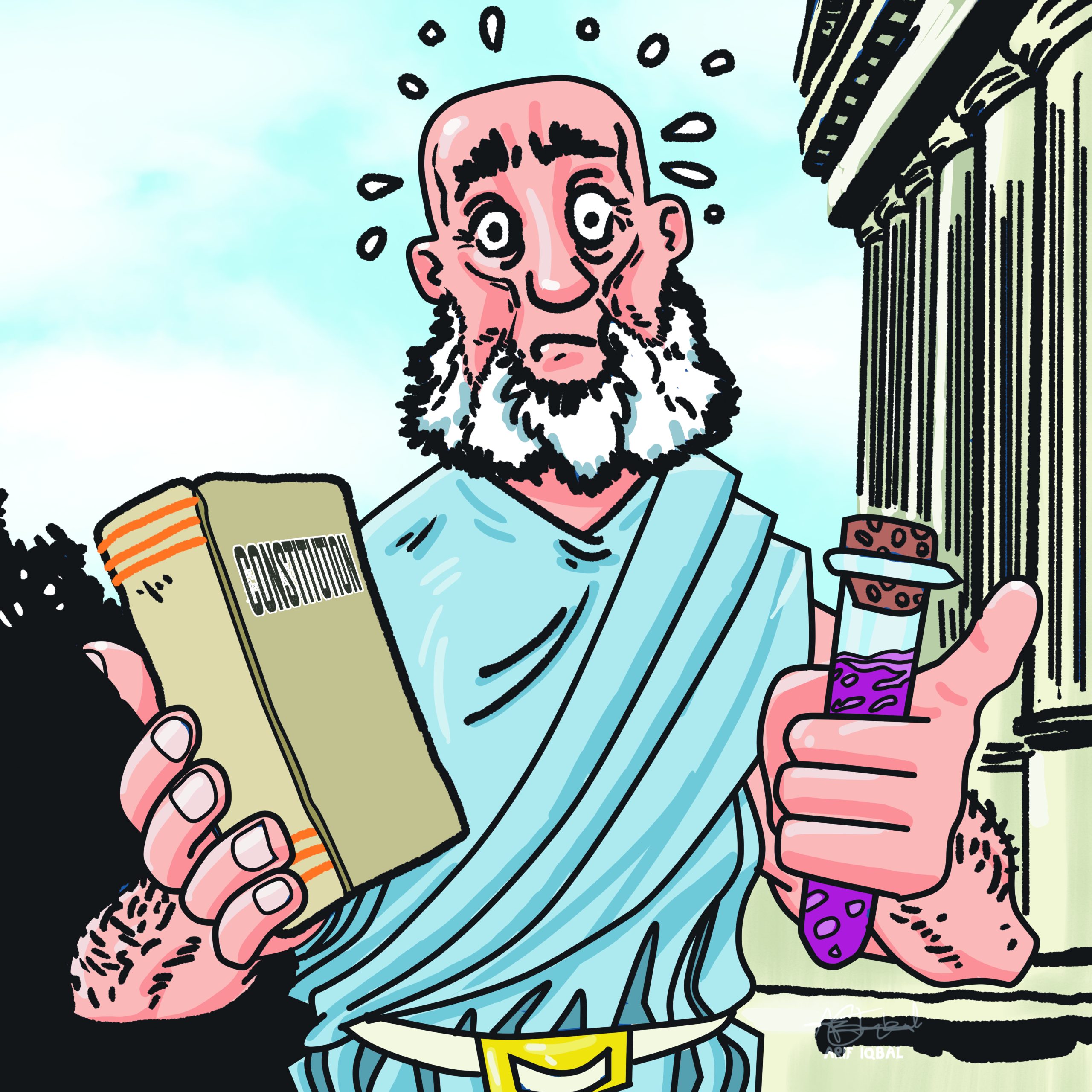The Greek philosopher Socrates does not need any introduction considering he is one of the most famous persons to have ever lived. Much has been written about Socrates and the era in which he lived. Socrates lived a life searching for and promoting knowledge, for which he is widely remembered. However, his death is perhaps as crucial to his legacy as his life. He was charged with impiety (failure to acknowledge Athens’s gods) and corrupting the youth of Athens by misleading them and undermining their moral fabric (The Last Days of Socrates, 2003). He was convicted of the charges brought against him and was sentenced to death, which he complied with by drinking poison hemlock. His disciples, who were nearly as famous as him (including Plato), wrote extensively about the last moments of Socrates’s illustrious life (see, Apology, Crito, Euthyphro, Phaedo). However, we are not concerned with his last words for this essay. Instead, the discussion will focus on his trial. The essay is divided into two parts. In the first part, we will ponder what would have happened if Socrates had constitutionally guaranteed rights. In the second part, the essay discusses some insights about democracy that we may uncover while answering the abovementioned question. In the time of Socrates, Athens had a raw version of democracy, where citizens (adult males, excluding enslaved people) made political decisions through voting. Thus, comparing the modern understanding of democracy with its ancient understanding may help us comprehend the moral underpinnings of democracy. The invocation of the term democracy often presupposes the possession of moral legitimacy. However, this essay tries to show that democracy, simply and strictly so-called, may not always be moral.
The trial of Socrates was different from the ones we see in liberal democracies. 500 or 501 (the exact number remains widely disputed) citizens heard Socrates’s trial as jury members (The Last Days of Socrates, 2003). In ancient Athens, any resident could bring charges against another, and their peers would hear the trial as jury members. It was up to the accuser and accused to prove their cases. After hearing both parties, the jury would vote to decide whether the accused would be condemned or declared innocent. Socrates’s trial took place in two stages. First, the jury decided whether he was guilty or not. In the second stage, they decided what his punishment would be. Despite his brilliant defense (as recollected by Plato in the Apology), the jury convicted him by a small majority. After he was declared guilty, the jury, by a large majority, sentenced him to death.
If democracy is seen simply as a system of being ruled by people’s will (democracy, simply and strictly so-called), the system of Athens would be more “democratic” than the democratic systems we see in today’s world. A system in which 500 citizens vote to decide an issue arguably possesses more democratic legitimacy than a system where one unelected judge (or even nine, as in the US Supreme Court) decides a case. However, something must feel intrinsically undemocratic or immoral about the trial of Socrates. From the records of his trial available to us, it can be said that he was tried and convicted for his philosophical inquiries and teachings. Inciting violence through one’s speech is a crime, even in the most liberal states (for instance, see, Whitney v California (1927) 274 U.S. 357). Even though Socrates had personal relationships with members of the oligarchic regime that temporarily overthrew the Athenian democracy, there was no evidence of Socrates’s teaching directly inciting violence (The Last Days of Socrates, 2003).
If Socrates lived in a state with a constitutionally guaranteed right to freedom of speech, he would have been protected from being punished for expressing his philosophical views. The constitutional guarantee of rights ensures that the right cannot be abridged even by an overwhelming majority of the people. For instance, imagine that Socrates lived and pursued his philosophical investigations in the modern-day United States of America (USA). On paper, the democracy in ancient Athens may seem more legitimate than the USA as it did not have controversial systems like the electorate system used to elect the President of the USA. However, under the First Amendment of the Constitution of the USA, the citizens of the USA enjoy unparalleled freedom of speech and expression (An Essay on Freedom of Speech: The United States versus the Rest of the World, 2006). To explain the foundational understanding of freedom of speech and expression in the USA, the Supreme Court of the USA held,
If there is a bedrock principle underlying the First Amendment, it is that the government may not prohibit the expression of an idea simply because society finds the idea itself offensive or disagreeable... We have not recognized an exception to this principle even where our flag has been involved…
… [T]he constitutionally guaranteed 'freedom to be intellectually… diverse or even contrary,' and the 'right to differ as to things that touch the heart of the existing order,' encompass the freedom to express publicly one's opinions about our flag, including those opinions which are defiant or contemptuous. [Texas v Johnson (1985) 491 U.S. 397.]
As the USA’s Constitution protects its citizens’ freedom to be intellectually diverse and express views that are different from the dogmatic stance of the society, Socrates would not have been convicted had he lived in the modern-day USA, let alone condemned to death. Although the judicial process in the USA is less “democratic” than in ancient Athens, the outcome of Socrates’s trial would have been more moral had it happened in the USA. Thus, democracy, simply and strictly so-called, is not always morally attractive. Addendums such as constitutionally protected liberal rights must be made to make democracy morally attractive.
Because of this inner complexity, scholars like Conor Gearty argue that there is an ever-present tension between democracy and constitutional rights (Human Rights Law, 2019). If democracy is simply seen as being ruled by the people’s will or government by the people, it losses its moral legitimacy, as illustrated by the example of Socrates’s trial. Democracy, simply and strictly so-called, by itself, is merely majoritarianism (Taking Rights Seriously, 1977). For government by the people to be a moral system, it must restrain people’s will through constitutionally guaranteed rights. Thus, when we think of democracy as a morally attractive concept, we must presuppose it be something more than just brute majoritarian power.
The author acknowledges the able research assistance of Mr. Ragib Shahriar.










